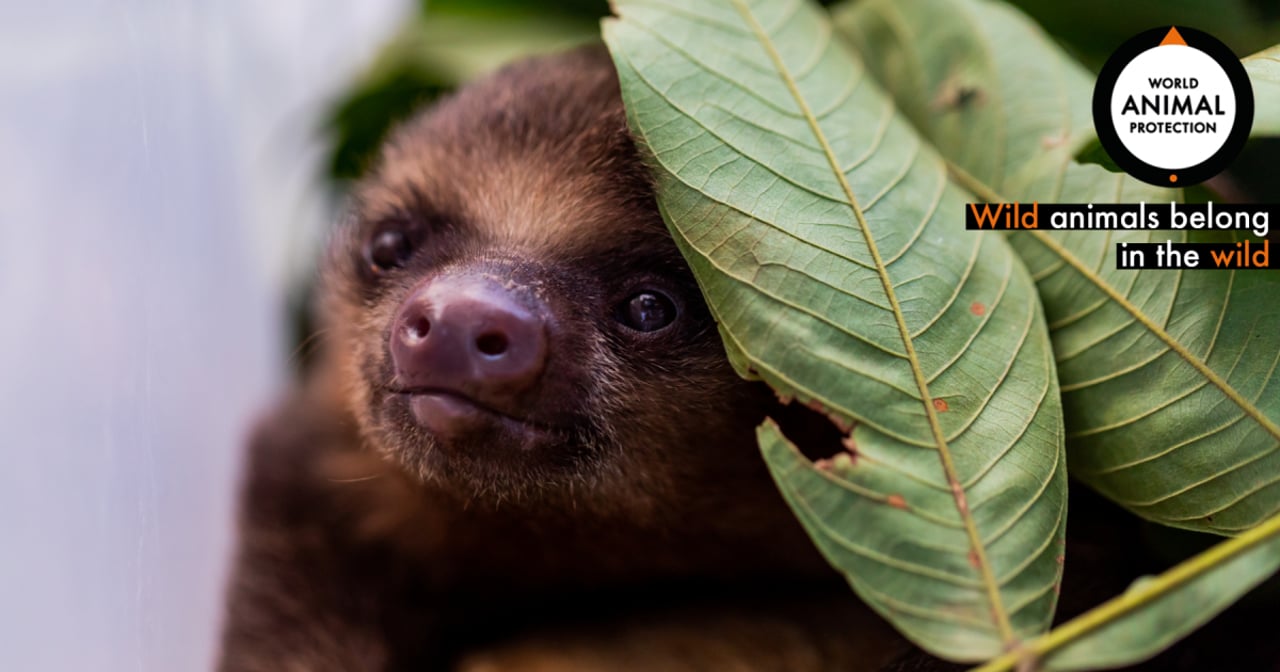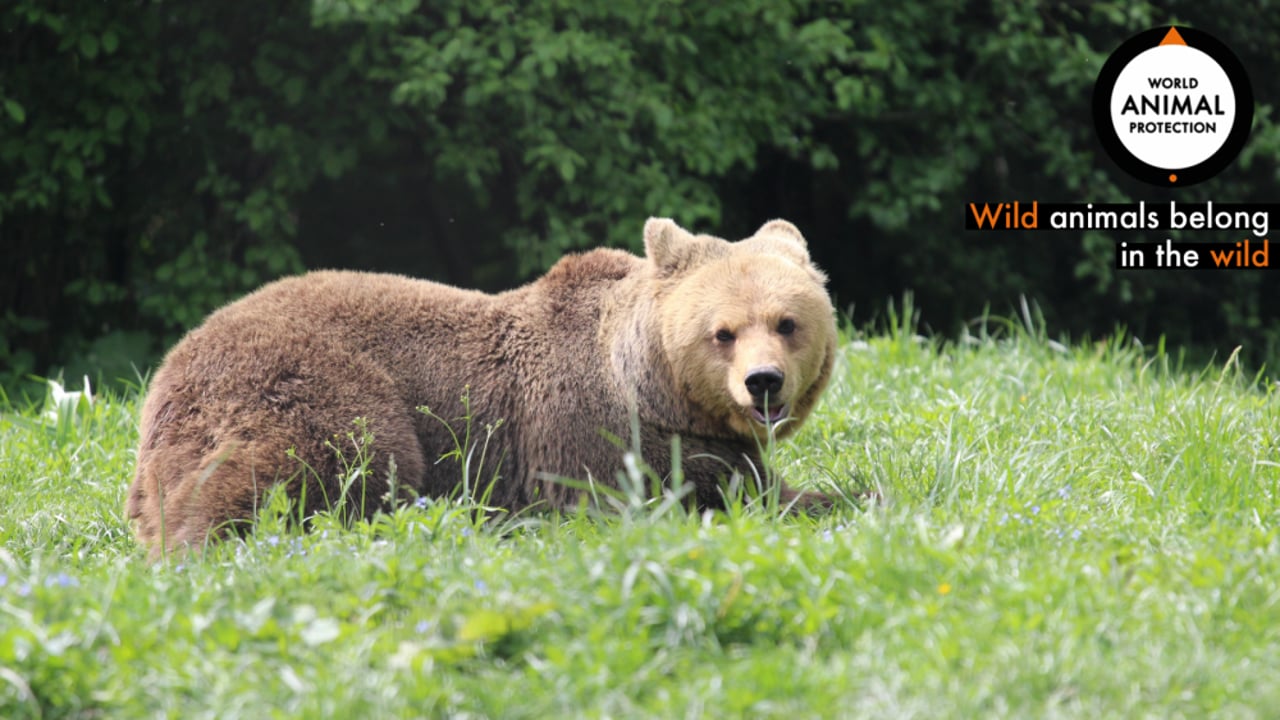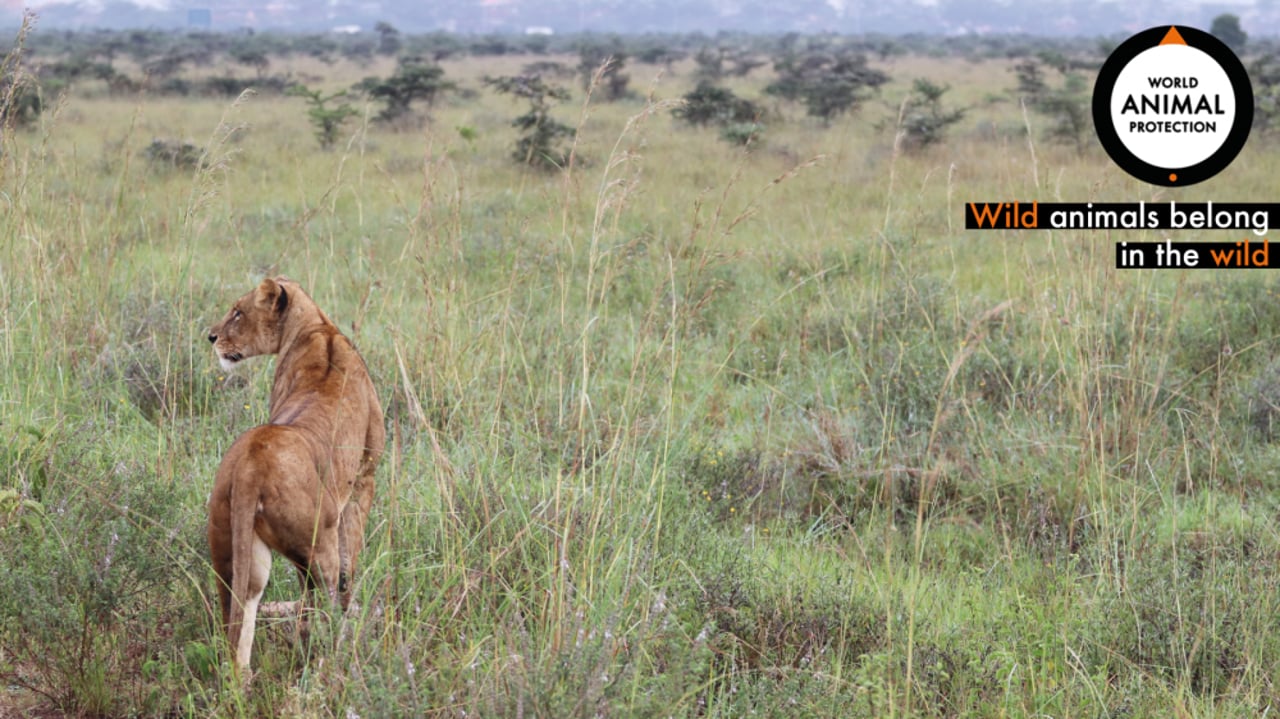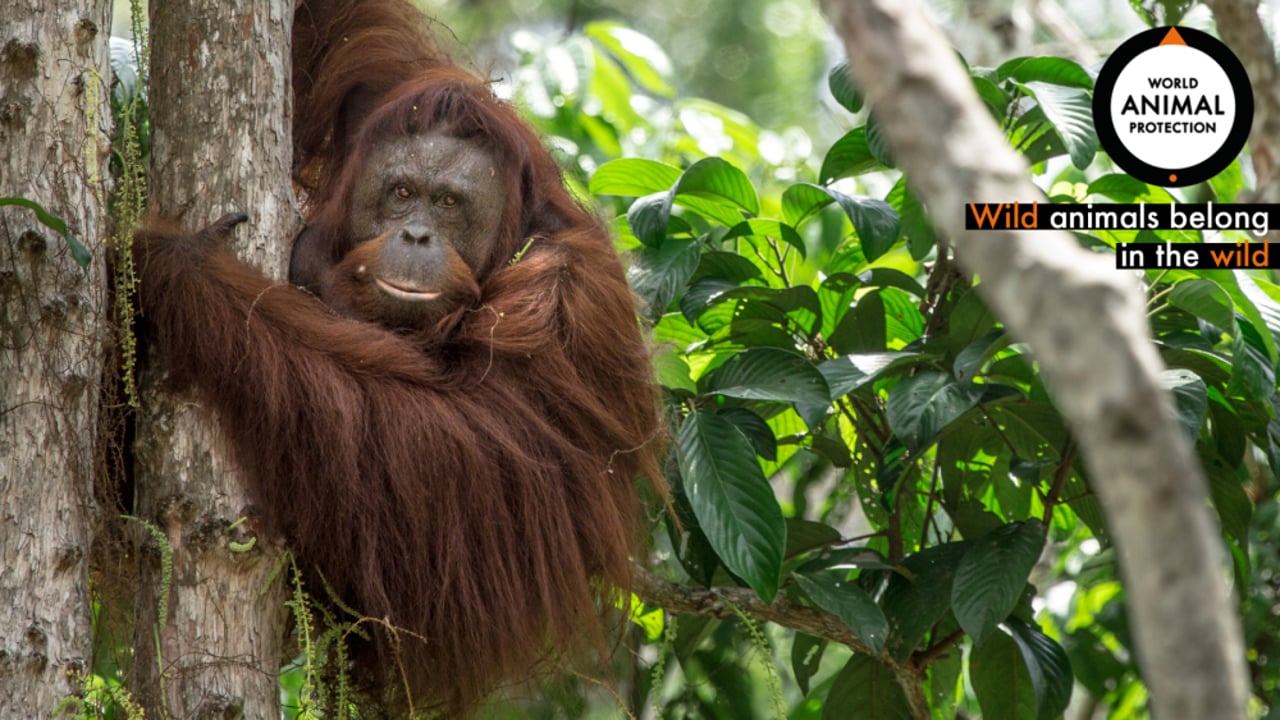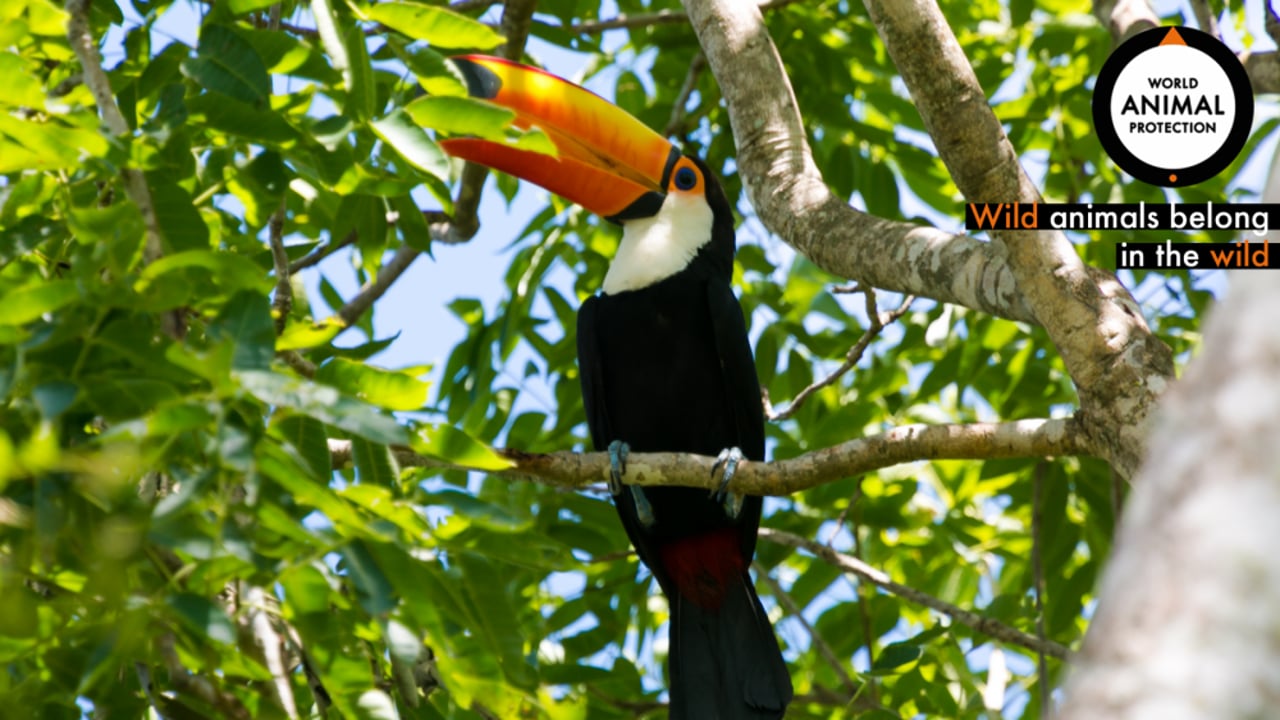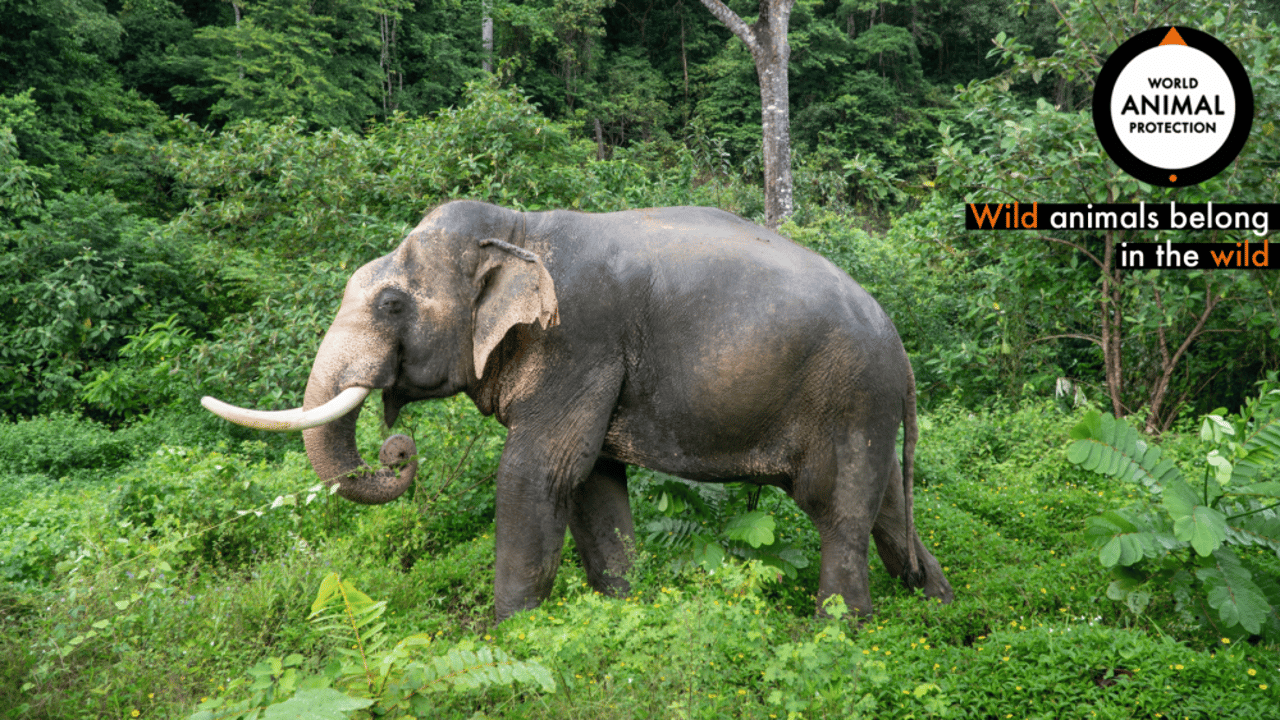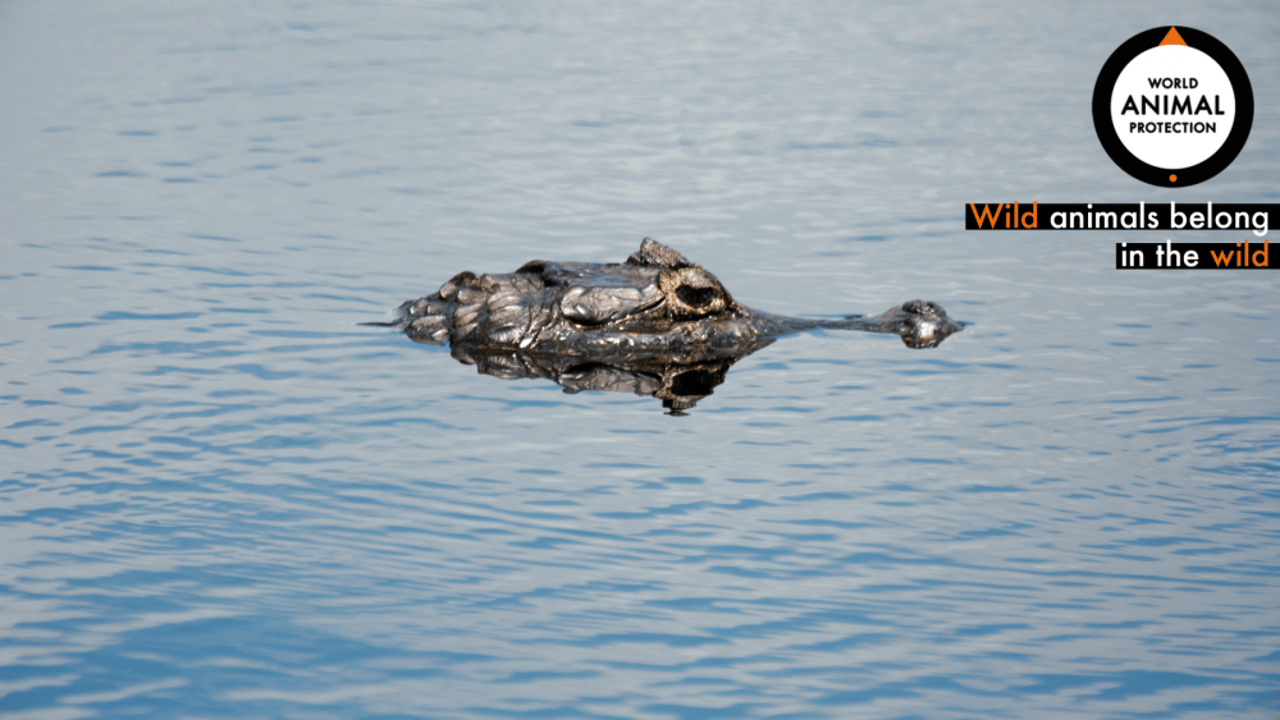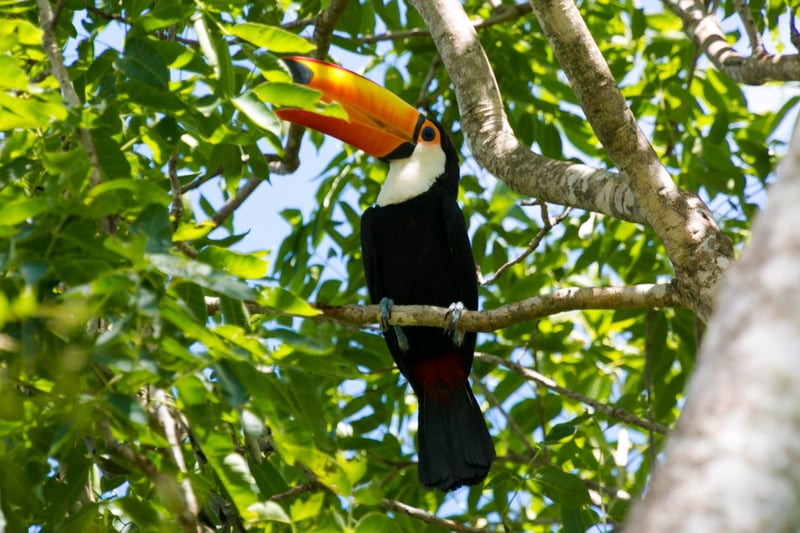
Make the most of being at home with our elephant, lion and other wild animal photos you can use as Zoom video call backgrounds
Many of us are working from home or spending more time indoors because of the COVID-19 pandemic.
That means a lot more of us are using Zoom, Skype and other conference call programmes, and gives us all the opportunity to share images we love as backgrounds and spread the word about the importance of keeping wild animals in the wild, where they belong.
How Zoom backgrounds work
Setting up a virtual background for your Zoom meeting could not be simpler.
All you have to do is tap the arrow button next to the video icon on the bottom of your screen and select 'choose virtual background'. Then you can choose to add your own image which you’ve saved on to your computer from the selection below.
Why is the writing backwards on my Zoom background?
Don’t worry if the writing looks backwards to you, as the other people on the call will see it the right way around. Zoom previews are mirrored by default, as that’s how we’re used to seeing as ourselves. You can turn off the mirroring, but it’s best not to.
Our global petition
Instead of asking for a donation or payment for these backgrounds, we’d really appreciate it if you signed our latest petition to end the global wildlife trade. Forever.
This cruel trade affects all the incredible wild animals in the pictures below. Use your voice to help us protect them.
Two toed sloth
With their gentle, slow nature, and facial markings that give the impression they’re always smiling, sloths have become one of the main animals used for 'wildlife selfies' in the Amazon. These typically calm, gentle animals are snatched from their natural habitats, forced to live in noisy, chaotic environments, and repeatedly passed around from tourist to tourist.
Eurasian brown bear
This brown bear is lucky enough to live in our Romanian partner sanctuary. We began building the Libearty Bear Sanctuary in 2005 with our Romanian partner AMP (Millions of Friends) after they contacted us about the plight of bears in illegal captivity in Romania. It has since been home to 126 bears rescued from lives of suffering in zoos and entertainment venues across Europe.
Lion
Even beyond the threat of habitat destruction, lions are also endangered by the wildlife trade. In South Africa, lion cubs are used for petting and ‘walking with lions’ experiences at tourist venues. When they get too big, they are used for ‘canned hunting’ – where hunters pay large sums of money for a guaranteed kill as the lions are trapped. Their bones are then harvested and exported to Asia, which is legal in South Africa. In 2018, South Africa exported 1,500 lion skeletons. This lion was photographed in Nairobi National Park, Kenya.
Orangutan
Like sloths, orangutans are also kept in cruel and unsuitable conditions and forced to interact with tourists for selfies. They are also subjected to training in order to perform in grotesque 'entertainment' for tourists, such as bicycle riding, zip lining, boxing or even dancing in bikinis. Thankfully, the orangutan below lives in the BOSF sanctuary in Borneo.
Toucan
Toucans also often suffer the same fate as sloths and orangutans, imprisoned and painfully handled for the entertainment of tourists. This toucan, however, was spotted in the wild in Brazil.
Asian Elephant
Tragically, thousands of elephants are kept in captivity for the sake of wildlife tourism across Asia. Their size, strength and intelligence results in inhumane practices, such as chaining, cruel training and harsh punishment so they can entertain tourists. The elephant below lives happily in ChangChill, an elephant-friendly venue in Thailand we support.
Caiman
As well as being exploited for cruel tourist selfies like other animals in this list, Caimans are also farmed in unsuitable conditions for their skin which is turned into leather for luxury goods.
Protect wild animals
In order to protect animals like these from further cruelty, we must end the global wildlife trade. Forever.
